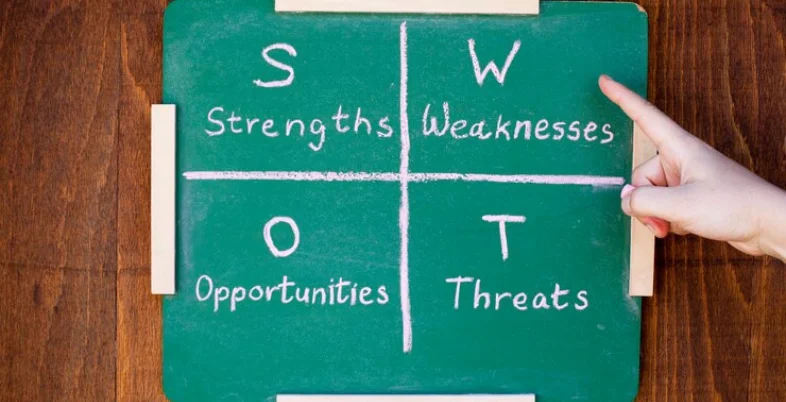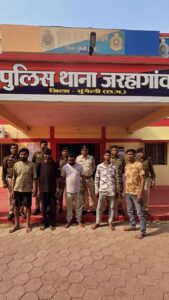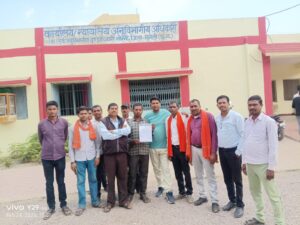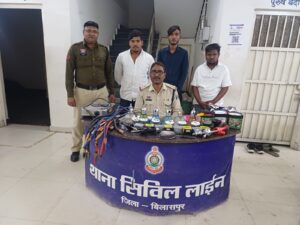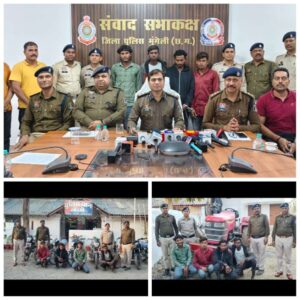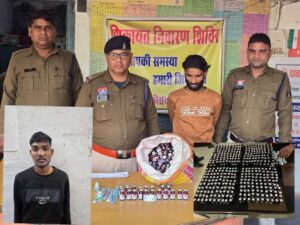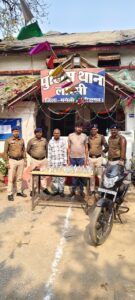
The first strength is academic performance, though this varies among students. This includes good academic performance, high standard test performance, and neat performance in areas of specialty. For instance, a student who scores high grades in mathematics for a number of years can utilise this strength in higher-level courses or a future career in engineering or finance.
Strategies to Leverage Academic Strengths:
- Advanced Placement (AP) Courses:
Take AP or honours classes to continue the academic challenge and potentially earn college credits.
- Scholarship Opportunities:
High academic achievements may be utilised to apply for scholarships and grants that reduce the cost of fees.
Take part in quiz bowls, spelling bees, and science competitions; you name it, participate in it, and get rewarded.
According to personal characteristics, it is possible to note that, for example, persistence, imagination, or the ability to work in a team can be crucial for a student. For instance, a learner with good time management skills can easily balance between the course work and other activities making him/her have a more balanced schedule.
Strategies to Utilise Personal Traits:
Based on the character strengths, set and accomplish personal and academic objectives.
Accept leadership posts in clubs or organisations to apply as well as develop more leadership skills.
Practice activities that require a creative part of the brain like writing, painting, or singing.
Another important ingredient is convenient and strong social networks, friends and families, teachers, and other role models. For instance, a student with a supportive family can get motivation and assistance to do well academically and with personal development.
Strategies to Maximise Support Systems:
Consider seeking the assistance of teachers/ mentors for career / course-related issues.
Build good rapport with individuals who are in a position to guide, support, and help in career advancement.
Take advantage of resources which include tutoring services, academic counseling, and career guidance offered in learning institutions.
4. Extracurricular Achievements
Extracurricular activities including talent building in games, performing arts, or social services are likely to build up a student’s profile. For instance, a child who is a music-performing artist may be able to gain trust, coordination, and assertiveness in a group activity that will enhance his/her studying and working career.
Strategies to Capitalize on Extracurricular Achievements:
- Highlight Achievements:
Link sports and other activities done in college while applying for a job or any other position so as to show that one has a balanced personality.
Utilise various sporting and co-curricular activities to obtain generic skills like working in groups, verbal and written expressions, and critical thinking.
- Networking Opportunities:
Get friendly with people within your schools who can help you secure internships, places, and jobs, or those who can be of technical help.

Course-related difficulties, such as poor performance in certain subjects, study problems, and delays, can adversely affect a student’s performance. For instance, a learner facing difficulties with writing tasks may suffer from poor performance together with stress levels.
Strategies to Overcome Academic Challenges:
Consult a tutor, form a study group, or join group academic sessions to enhance one’s performance in difficult topics.
Develop a learning schedule for your classes and utilise smart approaches in studying to improve understanding and memory.
It is necessary to manage time so as to avoid procrastination and remain as productive as possible.
Some concerns that may affect a student’s personal responsibility include challenges like lack of motivation, stress, and poor organizational skills. For instance, stress levels may impact a learner’s focus and success in class, leading to failure in meeting academic goals.
Strategies to Address Personal Issues:
Adopt the use of stress relief practices like taking part in yoga, taking a jog, or participating in a counseling session to overcome anxiety.
This method advises that one should set near-term goals and ensure that they give themselves incentives when they get to achieve them.
Organise the day more efficiently and do so by using planners, apps or other timetables that enhance the achievement of tasks.
Lack of items and means ranging from study materials and technological tools or help from a tutor may greatly affect the progress of a learner. For instance, a student, who never comes across a computer or broadband connection, will struggle to cope with an online tender or an online search.
Strategies to Mitigate Resource Limitations:
Some of the resources may require the use of libraries or computers and the internet; Students should prioritise using free or affordable resources.
Teachers or counsellors at school should be consulted when it comes to helping in getting resources or materials.
The teachers are articulating more ideas for studying; they need to get in groups or find group partners to share materials and practices.
4. Time Management Issues
Time management is one of the essential aspects to ensure that the educational, co-curricular, and individual tasks are well addressed. A student who struggles with punctuality is likely to have issues in submitting assignments on time and managing tasks.
Strategies for Improved Time Management:
Create a timetable for where one needs to study, what events he or she needs to attend, and other engagements that require a particular amount of time.
Employ priority assignment techniques to concentrate on important activities and to eliminate cramming.
Calendar, task list, or any sort of productivity tool to keep you on schedule and on top of your work.

1. Educational Opportunities
Other ways in which a student can benefit from the educational system include advanced courses, online classes, as well as other special programs. For instance, entering advanced placement courses can enable the students to earn college credits and make them ready for college.
Strategies to Exploit Educational Opportunities:
- Enrol in Advanced Courses:
Enroll in Advanced Placement (AP) or honors classes to challenge yourself and earn college credit.
One can check out online courses or MOOCs for further education and expanding one’s knowledge and skills.
Students should enroll in programs, workshops, or academic camps during the summer to enhance their knowledge and skills.
Students should seek career exploration experiences such as internships, part-time employment, or volunteering to gain insight into potential careers. For example, interning at a local business provides practical experience and helps students connect with professionals in their chosen field.
Strategies to Leverage Career Exploration Opportunities:
Get an internship or try job shadowing to help people enhance their practical experience in a given specialty.
This means that anyone should volunteer for organisations or causes that are closest to his or her career path in order to gain the required experience as well as the needed skills.
Spend time with your career counsellor to get an idea of what career you want to pursue and formulate how to get there.
Training that may be a workshop, leadership development, or any new activity must help in the development of the student. Thus, for instance, participating in leadership workshops provides skills that are useful in both academics and careers.
Strategies for Personal Development:
Attend workshops or seminars on matters of concern with a view to learning appropriate skills and gaining new knowledge.
- Join Leadership Programs:
Participate in leadership courses or activities such as clubs, to develop leadership and teaming capacities.
Engage in other activities that will help personal development and creativity other than academic activities.
4. Networking and Mentorship
Getting connected and getting mentored are good ways of finding direction and opportunities for the students. Connecting to students, faculties, and other professionals helps create opportunities while having better ideas.
Strategies to Build Networks and Seek Mentorship:
- Attend Networking Events:
Join any academic or professional networking event so that you are able to interact with like-minded people in your area of interest.
Identify mentors whose guidance and opinions align with your academic and career goals.
- Join Professional Organizations:
Become a member of professional organisations or student associations to expand your network and access resources.

Academic pressure from high expectations, competitive environments, or intense workloads can impact a student’s mental health and performance. For example, students facing high pressure may experience stress, burnout, or decreased motivation.
Strategies to Manage Academic Pressure:
Establish achievable academic goals and avoid overloading yourself with excessive coursework.
Exercise, relax, and enjoy other hobbies that would help keep the stress levels low and the spirit high.
Consult a counsellor, advisor, or support group to address academic pressure and stress.
Certain obstacles like social networks, part-time jobs, and personal concerns can take away the focus of a student from his academics. For example, too much use of social networks can lead to a decrease in studying time and, therefore, decrease productivity.
Strategies to Minimise External Distractions:
Limit time on social media and establish time for studying that should not involve the use of social media accounts.
Time management when working while studying by ensuring that one works at a time when he or she will not be attending classes.
- Address Personal Issues:
Students should seek counselling if personal issues are hindering their academic focus.
Economic factors such as financial constraints or rising costs can impact a student’s ability to access educational resources and opportunities. For example, high tuition fees or the cost of study materials can be barriers to education.
Strategies to Address Economic Factors:
- Apply for Financial Aid:
Find out scholarships, grants, and financial assistance from which one can be able to cater for their educational needs.
Make a budget that would work well in cases and reduce unnecessary expenses to ensure that all available resources are used efficiently.
- Explore Cost-Effective Resources:
Use free or affordable instructional material like open texts library books or any other online resources.
4. Changing Educational Trends
Changes in educational trends, such as shifts in teaching methods, curriculum updates, or new technologies, can impact a student’s learning experience. For instance, students might face challenges adapting to online learning platforms and virtual tools for assessments.
Strategies to Adapt to Changing Educational Trends:
Keep up-to-date with changes in educational trends and technologies to stay relevant in your studies.
Be open to using new educational tools and platforms to enhance your learning experience.
Participate in workshops or training sessions on new technologies or teaching methods to improve your adaptability.
By doing the SWOT analysis for students can acquire complete insight into their academic and personal advantages and drawbacks as well as the opportunities and threats. Strength, weakness, opportunity and threat analysis help the students to develop a clear and realistic plan that would allow them to improve their academic performance and personal development.
Students should focus on:
- Capitalising on Strengths: Utilising academic achievements, personal traits, support systems, and extracurricular accomplishments to build a strong foundation for success.
- Addressing Weaknesses: Work on overcoming academic challenges, personal issues, resource limitations, and time management problems.
- Exploiting Opportunities: Take advantage of educational, career, personal development, and networking opportunities to broaden your horizons.
- Managing Threats: Be proactive in managing academic pressure, external distractions, economic factors, and changing educational trends to minimise their impact.
By implementing these strategies and regularly reassessing their SWOT analysis, students can navigate their educational journey more effectively and achieve their goals with confidence.
How can students leverage their strengths for academic success?
By focusing on areas of strength to build confidence and set achievable goals.
What strategies can help students address their weaknesses?
Creating a study plan, seeking extra help, and improving time management.
How can students capitalise on opportunities for personal growth?
Engaging in extracurriculars, attending workshops, and seeking mentorship.
- ब्राउन शुगर सहित 05 आरोपियों को पकड़कर मुंगेली पुलिस ने भेजा जेल में: मिली बड़ी सफलता - March 1, 2026
- लोरमी क्षेत्र में ताबड़तोड़ विकास की सौगात उपमुख्यमंत्री श्री साव द्वारा: क्षेत्र की चार सड़कों के लिए डिप्टी सीएम साव ने दी 10 करोड़ की सौगात - February 28, 2026
- राष्ट्र सर्वोपरि — वीरता, त्याग और संकल्प का पावन स्मरण 🇮🇳वीर सैनिक की पुण्यतिथि पूर्व सैनिक संगठन, मुंगेली की अगुवाई में गरिमामय श्रद्धांजलि सभा का आयोजन किया गया। - February 27, 2026



